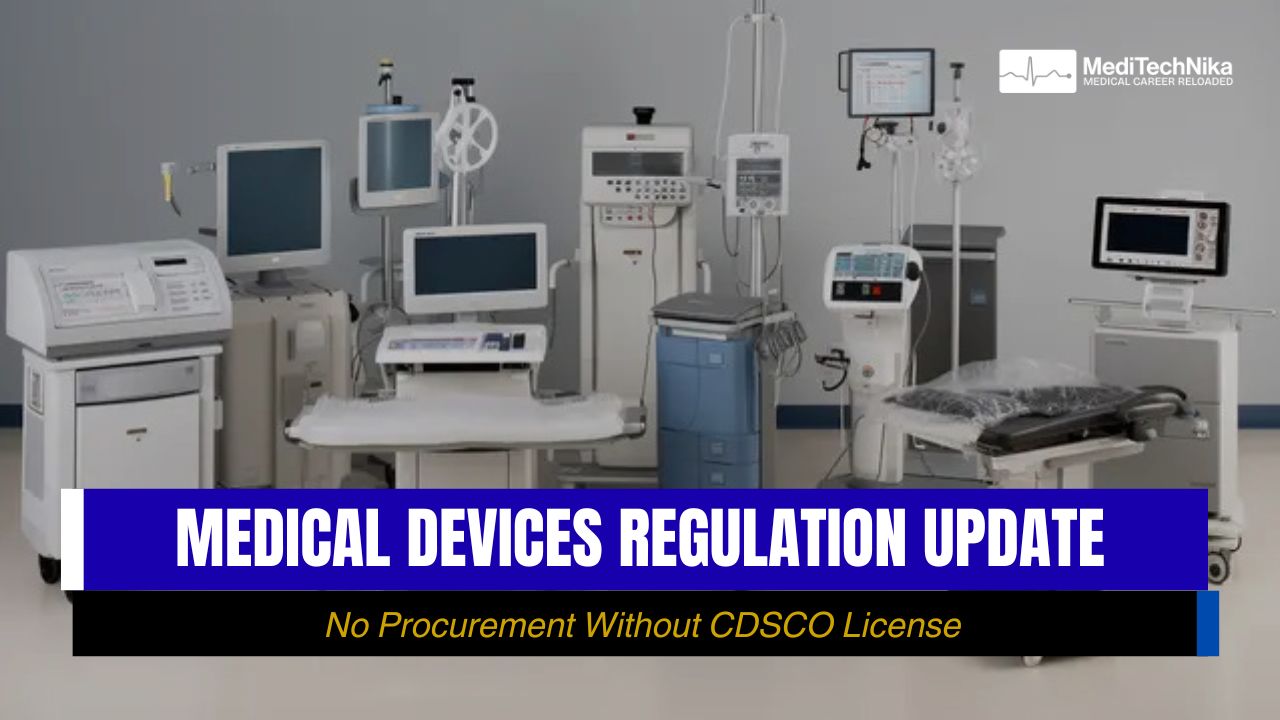Medical Devices Regulation Update: No Procurement Without CDSCO License
Medical Devices: India’s medical device regulators, the Central Drugs Standard Control Organisation (CDSCO), have launched a new initiative that requires all medical devices procured in India to secure a license from either the central or the state/UT licensing authority.
This initiative is to prioritize Indian regulatory approval over foreign certifications like USFDA or CE for the procurement. This is essential because without the procurement, they cannot be sold.
New CDSCO Circular Reframes Procurement Rules
The Drugs Controller General of India (DCGI), CDSCO, clarified that not even a single medical device can be sold in India without the validation or issue of a license. The regulator has also mentioned that these licenses should be a mandatory part of the medical devices for institutional procurement, as many procurement agencies, hospitals, and medical institutions insist on this.
Foreign Certifications are Secondary, Not Sufficient
CDSCO also addresses this trend of procurement, especially as hospitals are demanding USFDA or European CE certification or a license for the use.
According to the Medical Devices 2017 rule, all categories of medical devices must have a license or certification from any other authority or international agencies like the USFDA.
Industry Response: A Reassuring Push for Domestic Players
This initiative was also supported by the leaders in the Indian medtech industry. Rajiv Nath, forum coordinator at the Association of Indian Medical Device Industry (AiMeD), addressed it as “a Welcome move”. Even with the new launch/initiative, some industry stakeholders believe that big buyers and hospitals may still require CE or USFDA certification in addition to Indian licenses, and they remain cautious.
The new procurement initiative for medical devices helps India boost its medical device industry domestically. This policy has a dual goal: one is to ensure safety and regulatory compliance, and the other is to promote India’s medtech manufacturing industry.
There are challenges in implementing this initiative, yet this move helps to reduce over-dependency and strengthen local industries.
